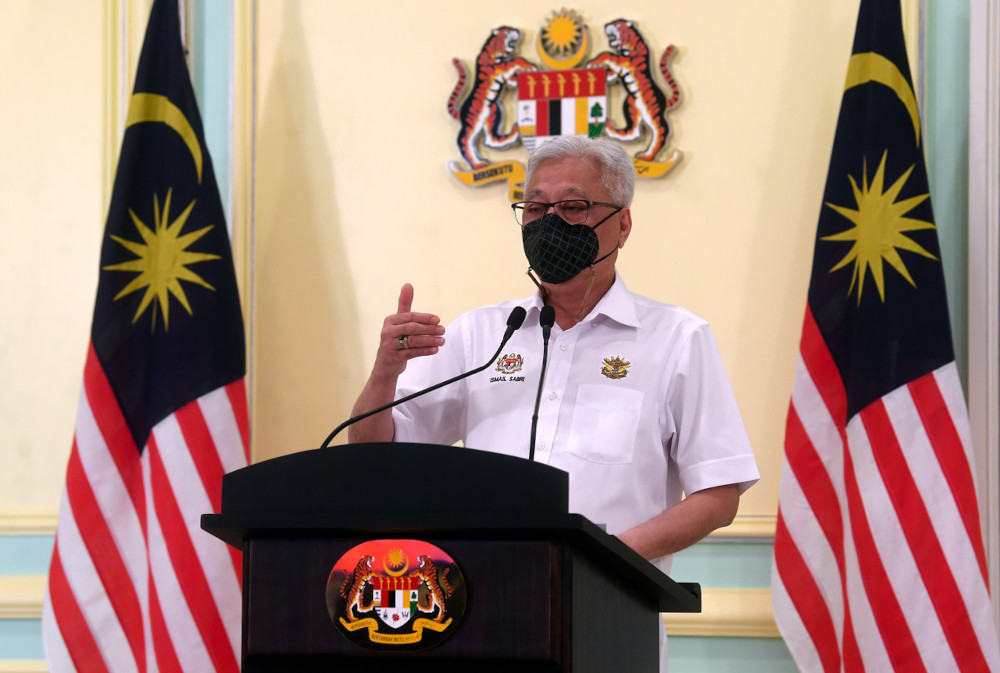KUALA LUMPUR, May 30 — The food and beverage industry along with health services, water and energy utilities, transport — including ports and airports — will be among the essential services sectors allowed to open during the third movement control order (MCO) from Tuesday.
In an announcement this afternoon, Senior Defence Minister Datuk Seri Ismail Sabri Yaakob also said other sectors allowed to operate are those in communications — including the news media and broadcasts — banks, information technology, construction and critical repairs as well as forestry and wildlife enforcement.
He said most manufacturing sectors are required to close except for a select few, including aerospace, food and beverages, printing, cleaning and health.
Ismail specified, however, that these factories will only be able operate with a maximum of 60 per cent of their workforce.
The minister added that all business hours will be limited to 8am to 8pm only, except for markets — such as fresh markets — and petrol stations.
List of essential services allowed to open
1) Food and beverage, including for animals
2) Health and medical care, including dietary supplements, animal care and clinics as well as veterinary services
3) Water
4) Energy
5) Security and safety, defence, emergency, welfare and humanitarian assistance
6) Solid waste management and public cleaning and sewerage
7) Transportation by land, water or air
8) Services and operations of ports, shipyards and airports – including loading, lattice transportation, cargo handling and piloting, and storage or bulk commodity
9) Communications — including media, telecommunications and internet, post and courier as well as broadcasting (for purposes of conveying information, news and the like only)
10) Banking, insurance, takaful and capital markets
11) Community credit (pawn shops and Islamic pawn broking facilities only)
12) E-commerce and information technology
13) Production, distillation, storage, supply and distribution of fuels and lubricants
14) Hotels and accommodation (only for the purpose of quarantine, isolation and not for tourism purposes)
15) Critical construction, maintenance and repairs
16) Forestry services (limited to enforcement) and wildlife
17) Logistics limited to the delivery of necessary services
List of manufacturing sectors allowed to open
1. Aerospace (components along with maintenance, repair and overhaul)
2. Food and beverage
3. Packaging and printing materials — only related to food or health products
4. Personal care products and cleaning supplies
5. Healthcare and medical care products including dietary supplements
6. Personal protective equipment (PPE) including rubber gloves, and fire safety equipment
7. Medical equipment components
8. Electrical and Electronics
9. Oil and gas, including petrochemicals and petrochemical products
10. Machinery and equipment -- only related to food or health products
12. Textiles for manufacturing of PPE only
13. Production, distillation, storage, supply and distribution of fuels and lubricants
Ismail Sabri added that farming and fishing activities are also allowed, along with the activities of their related supply chain.
“For example, the shops that sell fertiliser and palm fruit processing factories are allowed to operate,” he said.
Similarly, the agriculture and commodities sectors are allowed to operate along with their supply chains.
The construction sector is allowed to operate but is limited to: “critical” maintenance and repair works, construction of important public infrastructure, and construction of workers quarters at construction sites or for “centralised labour quarters (CLQ)”.
For public services, Ismail Sabri said only 20 per cent of workers are allowed to work in office for “necessary work” — not including Covid-19 frontliners, and security and defence personnel.
He added that kindergartens — whether private, public or international — along with “mind development centres” for children aged four to six, are not allowed to operate, except for those catering to frontliners or for children where both parents are working.




















